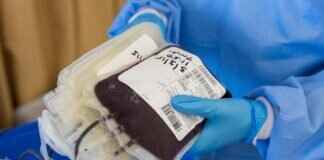This article explores the nuances of fasting, particularly regarding water intake. Understanding the different types of fasting and hydration practices is essential for anyone considering fasting for health or religious reasons. The relationship between fasting and hydration is complex, and it’s crucial to distinguish between various fasting methods to make informed choices.
Understanding Fasting: Definitions and Types
Fasting can be broadly defined as the voluntary abstention from food and, in some cases, beverages. There are several types of fasting, including:
- Intermittent Fasting: Alternating between periods of eating and fasting.
- Religious Fasting: Observed for spiritual reasons, with different practices across faiths.
- Prolonged Fasting: Extended periods without food, often lasting several days.
Each type has its own guidelines regarding water intake, making it vital to understand these differences.
What is Intermittent Fasting?
Intermittent fasting (IF) has gained popularity as a dietary strategy for weight management and health improvement. It typically involves cycles of eating and fasting, such as:
- 16/8 Method: Fasting for 16 hours and eating within an 8-hour window.
- 5:2 Diet: Eating normally for five days and restricting calories on two non-consecutive days.
During fasting periods, hydration is crucial. Drinking water helps maintain energy levels and supports metabolic functions.
Health Benefits of Intermittent Fasting
Intermittent fasting is associated with various health benefits, including:
- Weight loss
- Improved insulin sensitivity
- Enhanced brain function
Proper hydration can amplify these benefits, as water plays a key role in metabolic processes.
Religious Fasting Practices
Fasting is an important aspect of many religions, with specific guidelines regarding water intake:
Islamic Fasting: Ramadan Guidelines
During Ramadan, Muslims fast from dawn until sunset. Water consumption is prohibited during daylight hours, but hydration is encouraged during non-fasting hours to prepare the body for the next day.
Christian Fasting: Variations and Practices
Christian fasting practices vary widely. Some denominations allow water, while others may restrict it. Understanding the specific guidelines of one’s faith is essential.
Prolonged Fasting: Risks and Considerations
Prolonged fasting, which may last several days, often involves abstaining from both food and water. This practice can lead to severe dehydration and other health risks, making it crucial to understand hydration needs.
Health Risks of Extended Water Fasting
Extended water fasting without proper guidance can result in:
- Severe dehydration
- Electrolyte imbalances
- Kidney damage
Medical supervision is highly recommended for anyone considering prolonged fasting.
Signs of Dehydration During Fasting
Recognizing the signs of dehydration is critical. Symptoms include:
- Thirst
- Dizziness
- Dry mouth
Maintaining hydration, even during fasting, is essential for overall health.
Hydration Strategies for Fasting
To stay hydrated while fasting, consider the following tips:
- Drink water during non-fasting hours.
- Incorporate herbal teas and electrolyte drinks that do not contain calories.
Best Drinks During Fasting
While water is the primary choice, other beverages like herbal teas can aid hydration without breaking a fast.
How to Break a Fast Safely
When breaking a fast, it’s important to reintroduce fluids gradually to avoid digestive distress. Start with water, followed by light meals.

Understanding Fasting: Definitions and Types
Fasting is a practice that has gained significant attention for its potential health benefits, spiritual significance, and varied applications. Understanding fasting requires a comprehensive look at its definitions and different types, which can vary greatly depending on cultural, religious, and personal contexts. Below, we delve into the primary types of fasting, including intermittent fasting, religious fasting, and prolonged fasting, highlighting their unique characteristics and differences.
- Intermittent Fasting: This method alternates between periods of eating and fasting. It has gained popularity for its simplicity and flexibility, allowing individuals to tailor their fasting schedules. Common approaches include the 16/8 method, where one fasts for 16 hours and eats during an 8-hour window, and the 5:2 diet, which involves eating normally for five days and restricting calorie intake on two non-consecutive days.
- Religious Fasting: Many religions incorporate fasting as a spiritual discipline. For instance, during Ramadan, Muslims fast from dawn until sunset, refraining from food and drink. In Christianity, fasting practices can vary, with some denominations observing Lent through abstaining from certain foods. Each religion has specific guidelines on hydration and what is permissible during fasting periods.
- Prolonged Fasting: This type of fasting extends over a longer duration, typically more than 24 hours. While some individuals may engage in prolonged fasting for detoxification or weight loss, it poses significant health risks, especially if hydration is neglected. Medical supervision is often recommended to mitigate potential complications.
Each type of fasting serves different purposes and comes with its own set of rules and health implications. For example, intermittent fasting is often pursued for weight management and metabolic health, while religious fasting focuses on spiritual growth and discipline. In contrast, prolonged fasting is often approached with caution due to its potential health risks, particularly when it comes to hydration.
Understanding these distinctions is crucial for anyone considering fasting, as it allows individuals to choose a method that aligns with their goals and health needs. Additionally, it is essential to recognize the importance of hydration during fasting, as it can significantly impact overall well-being and fasting success.
In summary, fasting is a multifaceted practice that encompasses various methods, each with its own guidelines and purposes. Whether for health benefits or spiritual reasons, being informed about the different types of fasting can help individuals make educated decisions about their fasting journeys.

What is Intermittent Fasting?
Intermittent fasting has gained significant attention as a dietary approach that alternates between periods of eating and fasting. This method is not just a trend; it is rooted in various health benefits and can be practiced in a way that supports overall well-being. Understanding how to effectively incorporate intermittent fasting while maintaining proper hydration is crucial for anyone considering this method.
Intermittent fasting can be defined in several ways, but it primarily involves cycling between eating and fasting periods. The most common schedules include the 16/8 method, where individuals fast for 16 hours and eat during an 8-hour window, and the 5:2 diet, which allows regular eating five days a week while restricting calorie intake on two non-consecutive days.
One of the primary benefits of intermittent fasting is its potential to aid in weight loss. By limiting the eating window, many people naturally consume fewer calories. Additionally, fasting has been shown to enhance metabolic health, improving insulin sensitivity and promoting fat loss. However, to maximize these benefits, it is essential to stay hydrated during fasting periods.
| Fasting Schedule | Eating Window | Fasting Duration |
|---|---|---|
| 16/8 Method | 12 PM – 8 PM | 16 hours |
| 5:2 Diet | Regular eating | 2 days of 500-600 calories |
During fasting, it is crucial to maintain hydration. Drinking water is essential, but other beverages can also contribute to hydration without breaking the fast. Herbal teas and electrolyte drinks are excellent options that can help keep the body hydrated while adhering to fasting rules.
Moreover, hydration plays a vital role in supporting the body’s functions during fasting. It can help reduce feelings of hunger, improve energy levels, and enhance concentration. Individuals should aim to drink plenty of water during the eating windows to replenish fluids lost during fasting.
It’s important to listen to your body and recognize signs of dehydration, such as dry mouth, fatigue, and dizziness. If you experience these symptoms, it may be necessary to adjust your hydration strategy. Staying aware of your body’s needs can significantly enhance your intermittent fasting experience.
In summary, intermittent fasting is a versatile dietary approach that offers numerous health benefits, including weight loss and improved metabolic health. By understanding various fasting schedules and prioritizing hydration, individuals can practice intermittent fasting effectively while ensuring their bodies remain healthy and hydrated.
Common Intermittent Fasting Schedules
Intermittent fasting (IF) has gained popularity as a flexible dietary approach that alternates between eating and fasting periods. Understanding the different schedules of intermittent fasting is crucial for anyone looking to incorporate this method into their lifestyle. Below, we explore some of the most common intermittent fasting schedules and discuss their implications for water consumption during fasting periods.
- 16/8 Method: This is one of the most popular forms of intermittent fasting, where individuals fast for 16 hours and eat during an 8-hour window. Typically, this means skipping breakfast and eating from noon to 8 PM. During the fasting hours, it is essential to stay hydrated, and drinking water is highly encouraged.
- 5:2 Diet: In this method, individuals consume a regular diet for five days of the week and limit their calorie intake to about 500-600 calories on two non-consecutive days. While fasting on these days, it is important to drink plenty of water to help manage hunger and maintain hydration levels.
- Alternate-Day Fasting: This schedule involves alternating between fasting days and eating days. On fasting days, individuals may consume very few calories or none at all. Staying hydrated is crucial during these fasting periods, and water intake should be prioritized.
- Warrior Diet: This diet consists of undereating during the day and consuming one large meal in the evening. While the eating window is limited, individuals are encouraged to drink water and other non-caloric beverages throughout the day to stay hydrated.
- One Meal a Day (OMAD): This extreme form of intermittent fasting involves consuming all daily calories in a single meal. While this method may be effective for some, it is vital to ensure adequate water intake throughout the day to prevent dehydration.
Regardless of the chosen intermittent fasting schedule, hydration remains a critical component. Water not only helps to curb hunger but also supports metabolic processes and overall health. During fasting periods, individuals should aim to drink water regularly, as it can help alleviate feelings of hunger and ensure the body functions optimally.
Additionally, incorporating other non-caloric beverages such as herbal teas can enhance hydration without breaking the fast. It is essential to listen to your body and adjust water intake according to individual needs and activity levels.
In summary, understanding the various intermittent fasting schedules and their implications for water consumption is vital for anyone considering this dietary approach. Prioritizing hydration during fasting periods can significantly enhance the benefits of intermittent fasting while ensuring overall well-being.
Health Benefits of Intermittent Fasting
Intermittent fasting has gained significant attention in recent years for its potential health benefits, including weight loss and improved metabolic health. However, a crucial aspect that often gets overlooked is the role of hydration during fasting periods. This section delves into how proper hydration can enhance the benefits of intermittent fasting and why it should not be neglected.
During intermittent fasting, individuals typically cycle between periods of eating and fasting. While the focus is often on what to eat during eating windows, hydration is equally important. Water plays a vital role in various bodily functions, including digestion, nutrient absorption, and temperature regulation. Therefore, staying hydrated can significantly impact the effectiveness of your fasting regimen.
Understanding Hydration During Fasting
- Water Intake: It is generally recommended to drink plenty of water during fasting periods. This helps to keep the body hydrated, flush out toxins, and support overall metabolic processes.
- Electrolytes: In addition to water, replenishing electrolytes can be beneficial, especially if you are engaging in prolonged fasting or intense physical activity. Consider adding a pinch of salt to your water or consuming electrolyte drinks that do not contain calories.
Benefits of Staying Hydrated While Fasting
- Enhanced Fat Loss: Proper hydration can help maintain metabolic rate, which is crucial for fat loss. Studies suggest that even mild dehydration can slow down metabolism, hindering weight loss efforts.
- Improved Energy Levels: Dehydration can lead to fatigue and low energy levels. Staying hydrated ensures that you have the energy needed to engage in physical activity, which is often recommended during fasting.
- Better Appetite Control: Drinking water can help manage hunger pangs. Sometimes, the body confuses thirst with hunger, leading to unnecessary snacking. By staying hydrated, you may find it easier to stick to your fasting schedule.
Hydration Tips for Intermittent Fasting
- Start your day with a glass of water to kickstart hydration.
- Keep a water bottle handy throughout the day to track your intake.
- Consider herbal teas or black coffee, as they can contribute to hydration without breaking your fast.
Conclusion
In summary, while intermittent fasting is an effective method for achieving various health benefits, the importance of hydration cannot be overstated. By ensuring adequate water intake and considering electrolyte balance, individuals can maximize the positive effects of their fasting regimen. Whether you are fasting for weight loss, metabolic health, or other reasons, remember that staying hydrated is a crucial component of success.

Religious Fasting Practices
Religious fasting practices are a significant aspect of many faiths around the world. These practices often serve as a means of spiritual reflection, self-discipline, and community bonding. This section delves into how various religions approach fasting, particularly focusing on the guidelines regarding water consumption during these periods.
- Islamic Fasting: Ramadan Guidelines
In Islam, fasting during the month of Ramadan is one of the Five Pillars of Islam. Muslims fast from dawn until sunset, abstaining from food, drink, smoking, and marital relations during daylight hours. Water consumption is strictly prohibited during these fasting hours, emphasizing the spiritual aspect of the fast. However, hydration is encouraged during the non-fasting hours, particularly before dawn (Suhoor) and after sunset (Iftar). It is vital for Muslims to drink ample water during these periods to maintain health and energy levels throughout the month.
- Christian Fasting: Variations and Practices
Christian fasting practices vary significantly among denominations. For example, during Lent, many Christians choose to fast or give up certain luxuries. Some may abstain from food entirely for specific days, while others might limit their intake. In most cases, water is allowed and even encouraged to maintain hydration. Different denominations, such as Catholics and Orthodox Christians, may have specific guidelines regarding food and drink during fasting periods, but water is generally considered permissible.
- Jewish Fasting: Yom Kippur and Tisha B’Av
In Judaism, fasting is observed on several occasions, with Yom Kippur being the most significant. On this day, Jews fast from sunset to sunset, refraining from both food and drink. This complete fast is a time for reflection and atonement. Another significant fast is Tisha B’Av, which also prohibits food and drink. The emphasis on abstaining from water during these fasts highlights the gravity of the observance. Hydration before and after these fasts is crucial for health.
- Buddhist Fasting: Mindfulness and Simplicity
Buddhism incorporates fasting as a practice of mindfulness and simplicity. Monks often follow a schedule where they eat only once a day, typically before noon. While this is not a strict fast, it encourages awareness of consumption and promotes a minimalist lifestyle. Water is generally allowed, emphasizing the importance of hydration while practicing self-discipline.
- Hindu Fasting: Various Observances
In Hinduism, fasting can take many forms, from complete abstinence from food and water to partial fasts where certain foods are avoided. For instance, during Navratri, many Hindus fast for nine days, often allowing water and certain fruits. The guidelines can vary widely based on regional practices and personal beliefs, but hydration is typically encouraged during fasting periods.
Understanding the different approaches to fasting across various religions highlights the cultural and spiritual significance of this practice. While the specifics may differ, the underlying themes of self-discipline, reflection, and community remain constant. It is essential for individuals observing these fasts to remain mindful of their hydration needs, ensuring both spiritual fulfillment and physical health.
Islamic Fasting: Ramadan Guidelines
During the holy month of Ramadan, Muslims around the world observe fasting as a means of spiritual reflection, increased devotion, and worship. One of the most significant aspects of this practice is the abstention from food and drink from dawn until sunset. This section delves into the guidelines surrounding water intake during Ramadan and emphasizes the critical importance of hydration during non-fasting hours.
The rules of fasting during Ramadan are clear: Muslims must refrain from consuming any food or drink from the Fajr prayer until the Maghrib prayer. This includes abstaining from water, which can often lead to concerns about hydration levels throughout the day. However, it is essential to understand that the hours of fasting are balanced by the opportunities to hydrate once the sun sets.
During the non-fasting hours, particularly between iftar (the evening meal to break the fast) and suhoor (the pre-dawn meal), it is crucial to prioritize water intake. Here are some guidelines and strategies to ensure proper hydration:
- Drink Plenty of Water: Aim to consume at least 8-10 glasses of water between iftar and suhoor. This will help replenish fluids lost during the fasting hours.
- Include Hydrating Foods: Incorporate fruits and vegetables with high water content, such as cucumbers, tomatoes, and watermelon, into your meals.
- Avoid Caffeinated Beverages: Drinks like coffee and tea can lead to dehydration. Opt for herbal teas or simply water to stay hydrated.
- Space Out Water Intake: Instead of consuming large amounts of water at once, sip throughout the evening to maintain hydration levels.
Understanding the importance of hydration during Ramadan cannot be overstated. Dehydration can lead to fatigue, headaches, and decreased concentration, which can hinder one’s ability to engage in prayers and other spiritual activities. Furthermore, maintaining hydration can help prevent digestive issues that may arise from breaking the fast.
It is also essential to listen to your body. If you feel thirsty or fatigued, it may be a sign that you need to increase your water intake during non-fasting hours. Remember, the goal of fasting is not only to abstain from food and drink but also to foster self-discipline and mindfulness, which can be enhanced by maintaining good hydration practices.
In summary, while fasting from water during the day is a significant aspect of Ramadan, the hours after sunset are an opportunity to ensure that the body receives the necessary fluids. By following these hydration guidelines, Muslims can observe their fasts effectively while minimizing the risk of dehydration and its associated complications.
Christian Fasting: Variations and Practices
Christian fasting is a practice deeply rooted in the faith, with variations that reflect the diverse beliefs and traditions among different denominations. Understanding these variations is crucial for individuals who wish to engage in fasting as a spiritual discipline. This section delves into the various practices of Christian fasting and provides general guidelines regarding water consumption during these fasts.
Types of Christian Fasting
- Absolute Fast: This type of fast involves abstaining from all food and water for a specific period. It is often undertaken for a short duration and is seen as a way to deepen one’s spiritual connection.
- Partial Fast: In this fast, individuals may restrict certain types of food or meals while still allowing water intake. This type is more common among various Christian denominations.
- Intermittent Fast: Some Christians adopt intermittent fasting, which involves cycling between periods of eating and fasting, often incorporating hydration during fasting hours.
Denominational Differences
Different denominations have unique approaches to fasting. For example, Roman Catholics traditionally observe fasting during Lent, allowing only one full meal and two smaller meals each day, with water permitted. In contrast, Eastern Orthodox Christians may engage in more rigorous fasting, especially during Great Lent, where specific dietary restrictions apply, but water is generally allowed.
Water Consumption Guidelines
When it comes to water consumption, most Christian fasting practices allow for hydration. However, the specifics can vary:
- During Lent: Many Christians are encouraged to drink water to maintain their health while fasting.
- During Prayer and Fasting: Some believers may choose to abstain from water during specific prayer times, but this is typically short-lived.
Health Considerations
While fasting can be a profound spiritual experience, it is essential to consider health implications. Dehydration can pose serious risks, especially during extended fasts. Therefore, individuals are advised to listen to their bodies and ensure they remain adequately hydrated. Consulting with a healthcare professional before embarking on a rigorous fasting regimen is also recommended.
Conclusion
Christian fasting varies widely among denominations, with each tradition offering unique practices and guidelines regarding water consumption. Understanding these differences is vital for anyone looking to engage in fasting as a spiritual discipline. By considering personal health and hydration needs, individuals can embark on a fasting journey that is both spiritually enriching and physically safe.

Prolonged Fasting: Risks and Considerations
Prolonged fasting is a practice that has gained popularity for various reasons, including health benefits and spiritual growth. However, it involves significant risks, especially when it comes to hydration. Understanding these risks is crucial for anyone considering extended fasting periods.
Prolonged fasting typically refers to abstaining from food and often water for durations longer than 24 hours. While some individuals may undertake this practice for detoxification or weight loss, it is essential to recognize the potential dangers that accompany such extreme measures.
One of the most pressing concerns during prolonged fasting is the risk of dehydration. When the body is deprived of water for extended periods, it can lead to severe health complications, including:
- Kidney Damage: Prolonged dehydration can strain the kidneys, leading to potential long-term damage.
- Electrolyte Imbalance: Lack of hydration can disrupt the balance of essential electrolytes, causing muscle cramps, dizziness, and even heart issues.
- Reduced Cognitive Function: Dehydration may impair brain function, leading to confusion and decreased cognitive abilities.
Recognizing the signs of dehydration is vital for anyone engaging in prolonged fasting. Common symptoms include:
- Thirst: An obvious sign, but often ignored.
- Dry Mouth: A persistent dry sensation can indicate the need for hydration.
- Fatigue: Feeling unusually tired can be a sign of dehydration.
- Dizziness: Lightheadedness can occur as the body struggles without sufficient fluids.
It is crucial to listen to your body and respond to these signals promptly. Ignoring them can lead to serious health consequences.
Understanding your body’s hydration needs is essential when considering prolonged fasting. Generally, the human body can survive without food for several weeks, but without water, survival typically ranges from a few days to a week, depending on various factors such as climate, activity level, and individual health.
Before embarking on a prolonged fast, it is advisable to consult with a healthcare professional. They can provide guidance tailored to your health status and fasting goals. Moreover, incorporating hydration strategies can help mitigate risks. For instance, drinking water during non-fasting hours can replenish fluids lost during fasting periods.
To maintain proper hydration while fasting, consider the following strategies:
- Plan Hydration Times: Schedule your water intake during non-fasting hours to ensure you meet your hydration needs.
- Opt for Electrolyte Solutions: Consuming electrolyte-rich beverages can help maintain balance without breaking your fast.
- Monitor Urine Color: A light yellow color indicates proper hydration, while dark urine suggests dehydration.
By adhering to these strategies, individuals can better manage their hydration levels during fasting, reducing the risks associated with prolonged fasting.
In conclusion, while prolonged fasting can offer benefits, it is essential to approach it with caution. Understanding the risks and maintaining proper hydration should be top priorities for anyone considering this practice.
Health Risks of Extended Water Fasting
Extended water fasting, while sometimes promoted for its potential health benefits, poses significant risks that can lead to serious health complications. It is essential to understand the dangers associated with prolonged abstinence from food and, in some cases, water. This section will delve into the health risks of extended water fasting and emphasize the critical need for medical supervision.
One of the most severe risks of extended water fasting is dehydration. The human body requires a certain amount of water daily to function optimally. When fasting for extended periods, especially without water, individuals may experience symptoms ranging from mild discomfort to life-threatening conditions. Dehydration can lead to:
- Dizziness and lightheadedness
- Dry mouth and decreased urine output
- Fatigue and weakness
- Confusion or difficulty concentrating
- Rapid heartbeat and low blood pressure
These symptoms can escalate quickly, making it crucial for individuals considering extended fasting to be aware of their hydration needs. Additionally, prolonged fasting can lead to electrolyte imbalances, which can have serious consequences, including heart problems and muscle dysfunction. Electrolytes, such as sodium, potassium, and magnesium, are vital for maintaining bodily functions, and their depletion can occur rapidly during extended fasting.
Moreover, individuals with underlying health conditions, such as diabetes or kidney disease, are at an even greater risk during extended fasting. The lack of food intake can lead to hypoglycemia (dangerously low blood sugar levels), which can cause fainting, seizures, or even coma. Similarly, those with kidney issues may struggle to maintain proper fluid balance, further complicating their health during fasting.
Another significant concern is the potential for muscle loss. During extended fasting, the body begins to break down muscle tissue for energy after depleting its glycogen stores. This can lead to a decrease in overall strength and physical performance, which can be particularly detrimental for individuals who engage in regular physical activity.
It is also important to note that the psychological effects of extended fasting can be profound. Many individuals may experience heightened anxiety, irritability, or mood swings due to the lack of food and nutrients. This can lead to unhealthy relationships with food and exacerbate eating disorders in susceptible individuals.
Given these risks, it is vital to approach extended water fasting with caution. Seeking medical supervision is not just advisable; it is essential. Healthcare professionals can provide guidance on safe fasting practices, monitor health metrics, and ensure that individuals remain within safe hydration levels. They can also offer alternative methods to achieve health goals without the risks associated with extended fasting.
In conclusion, while extended water fasting may seem appealing for its potential health benefits, the associated risks cannot be ignored. Proper hydration, nutritional balance, and medical oversight are crucial for anyone considering this practice. Understanding the signs of dehydration and other complications can help individuals make informed decisions and prioritize their health and safety.
Signs of Dehydration During Fasting
Fasting can be a beneficial practice for many, but it is crucial to understand the importance of hydration during these periods. Dehydration can occur quickly, especially when food intake is limited. Recognizing the signs of dehydration is essential to ensure your health and well-being while fasting. This section outlines the symptoms to watch for and emphasizes the need to maintain hydration, even during fasting periods.
Common Symptoms of Dehydration
- Thirst: One of the earliest signs of dehydration, increased thirst indicates that your body needs more fluids.
- Dark Urine: If your urine is darker than usual, it may signal that you are not drinking enough water.
- Dry Mouth and Throat: A dry sensation in the mouth or throat can be a clear indication of dehydration.
- Fatigue: Feeling unusually tired or lethargic may be a sign that your body is lacking adequate hydration.
- Dizziness or Lightheadedness: Insufficient fluid intake can lead to dizziness, especially when standing up quickly.
- Headaches: Dehydration can trigger headaches, which may worsen if not addressed promptly.
- Dry Skin: Skin that lacks moisture may feel dry and lose its elasticity.
Why Hydration Matters During Fasting
Even if you are fasting, staying hydrated is crucial for several reasons:
- Maintaining Bodily Functions: Water is essential for various bodily functions, including digestion, circulation, and temperature regulation.
- Preventing Fatigue: Proper hydration can help maintain energy levels and prevent fatigue during fasting periods.
- Supporting Metabolism: Hydration plays a vital role in metabolic processes, which can be beneficial for those fasting for weight loss.
- Enhancing Mental Clarity: Staying hydrated can improve cognitive function, helping you stay focused and alert.
Hydration Strategies While Fasting
To combat dehydration while fasting, consider the following strategies:
- Drink Water Regularly: Aim to drink water during non-fasting hours to ensure you are adequately hydrated.
- Consume Hydrating Foods: If your fasting plan allows, include fruits and vegetables with high water content in your meals.
- Monitor Your Body: Pay attention to your body’s signals and adjust your fluid intake accordingly.
By recognizing the signs of dehydration and implementing effective hydration strategies, you can help ensure that your fasting experience is both safe and beneficial. Remember that while fasting can provide health benefits, it is essential to prioritize your hydration needs to maintain overall well-being.

Hydration Strategies for Fasting
Maintaining proper hydration is essential during fasting, whether for health, weight loss, or religious reasons. Many people often overlook the importance of water intake, mistakenly believing that fasting means complete abstinence from all consumables, including water. In reality, understanding how to stay hydrated while fasting can significantly enhance the fasting experience and its benefits.
Understanding Hydration Needs
During fasting, the body undergoes various metabolic changes that can affect hydration levels. It is crucial to recognize that dehydration can lead to fatigue, headaches, and decreased cognitive function. Therefore, knowing when and how to hydrate is key to successfully navigating fasting periods.
Best Times to Drink Water
- Before Fasting Begins: Start your day with a glass of water to ensure you begin your fast well-hydrated.
- During Non-Fasting Hours: If your fasting schedule allows, consume water during the hours when you can eat. Aim for at least 8-10 cups of water throughout the day.
- Post-Fast: When breaking your fast, begin with a glass of water. This helps to rehydrate your body and prepare your digestive system for food.
Practical Tips for Staying Hydrated
- Infuse Your Water: Adding slices of fruits like lemon, cucumber, or berries can make water more appealing and encourage higher intake.
- Set Reminders: Use your phone or a hydration app to remind you to drink water regularly, especially during non-fasting hours.
- Monitor Urine Color: A light yellow color indicates proper hydration, while dark yellow suggests dehydration. Adjust your water intake accordingly.
Alternative Hydration Options
While water should be your primary source of hydration, there are other beverages that can support your hydration efforts without breaking your fast. Consider the following:
- Herbal Teas: Unsweetened herbal teas can provide hydration and additional health benefits.
- Electrolyte Drinks: Look for zero-calorie electrolyte drinks that can help replenish lost minerals without affecting your fasting state.
- Broth: If your fasting allows, consuming clear broth can be a hydrating and nourishing option.
Signs of Dehydration to Watch For
Recognizing the signs of dehydration during fasting is crucial. Symptoms may include:
- Dry mouth and throat
- Fatigue and dizziness
- Headaches
- Dark yellow urine
If you experience any of these symptoms, it is essential to hydrate immediately to avoid complications.
Conclusion
By implementing these hydration strategies, you can ensure that your fasting experience is both healthy and effective. Remember that staying hydrated is not just about drinking water; it’s about being mindful of your body’s needs and responding appropriately. Proper hydration can enhance the benefits of fasting, making it a more rewarding experience overall.
Best Drinks During Fasting
When it comes to fasting, hydration is a crucial aspect that many individuals overlook. While water is the most recognized beverage for maintaining hydration, there are several other options that can be consumed without breaking a fast. This section delves into some of the best drinks during fasting, including herbal teas and electrolyte solutions.
One of the most popular alternatives to plain water during fasting is herbal tea. Herbal teas, such as chamomile, peppermint, and ginger, not only provide hydration but also offer various health benefits. For instance, chamomile tea is known for its calming effects, which can help alleviate stress during fasting periods. Peppermint tea can aid digestion, while ginger tea is excellent for soothing nausea and promoting overall digestive health. Importantly, these teas are naturally calorie-free and can be enjoyed hot or cold, making them a versatile choice for any fasting regimen.
Another excellent option is electrolyte drinks. During prolonged fasting, the body can lose essential minerals such as sodium, potassium, and magnesium. Consuming electrolyte solutions can help replenish these vital nutrients without breaking your fast. Look for options that are low in sugar and free from artificial additives. Some brands offer electrolyte powders that can be mixed with water, providing a refreshing and hydrating drink that supports your body’s needs during fasting.
- Green Tea: Rich in antioxidants, green tea can enhance fat oxidation and improve metabolism, making it a great choice during fasting.
- Coconut Water: While it contains some calories, coconut water is a natural source of electrolytes and can be consumed in moderation during certain fasting protocols.
- Bone Broth: For those practicing a more lenient fasting approach, bone broth can provide hydration along with essential nutrients and electrolytes.
It’s important to note that while these beverages can aid in hydration, they should be consumed mindfully. Always check the ingredients to ensure they align with your fasting goals. Additionally, some individuals may experience sensitivities to certain herbal teas, so it’s wise to start with small amounts and monitor your body’s response.
Incorporating these drinks into your fasting routine not only helps maintain hydration but also enhances the overall fasting experience. Whether you prefer the soothing qualities of herbal tea or the replenishing effects of electrolytes, there are plenty of options to keep you hydrated and energized during your fasting journey.
Ultimately, understanding your body’s hydration needs is key to a successful fasting experience. By choosing the right drinks, you can support your health and wellness goals while enjoying the benefits of fasting.
How to Break a Fast Safely
Breaking a fast is a critical moment that can significantly impact your digestive health. After a period of abstaining from food, your body needs to readjust to the reintroduction of nutrients and fluids. It’s essential to approach this process with careful consideration to avoid any potential digestive distress.
When you decide to break your fast, the first thing to consider is hydration. After hours without food or drink, your body may be in a state of mild dehydration. To combat this, start with small sips of water to gently rehydrate your system. Avoid gulping down large amounts of water at once, as this can overwhelm your stomach and lead to discomfort.
- Start with Fluids: Begin with water or herbal teas. These options are gentle on the stomach and help to hydrate without overwhelming your digestive system.
- Introduce Electrolytes: Consider adding a pinch of salt or a splash of lemon to your water. This can help replenish lost electrolytes and improve hydration.
- Choose Light Foods: After hydrating, opt for easily digestible foods like bone broth, smoothies, or soft fruits. These options provide nutrients without putting too much strain on your digestive tract.
As you progress, gradually introduce more solid foods. It’s advisable to start with small portions and chew thoroughly. This practice aids digestion and allows your body to acclimate to processing food again. Foods rich in fiber, such as vegetables and whole grains, should be introduced slowly to prevent bloating and gas.
Timing is also crucial. Give your body time to adjust between each food or drink you consume. A good rule of thumb is to wait at least 30 minutes before introducing another item. This allows your digestive system to signal whether it can handle more.
| Food Type | Recommended Timing | Why It’s Good |
|---|---|---|
| Water | Immediately | Rehydrates and prepares the stomach for food |
| Bone Broth | 30 minutes after water | Rich in nutrients, easy to digest |
| Soft Fruits | 1 hour after broth | Provides vitamins and natural sugars |
| Vegetables | 2-3 hours later | High in fiber, aids digestion |
Additionally, be mindful of your body’s reactions. If you experience any discomfort, such as bloating, nausea, or cramping, it may be a sign that you are reintroducing food too quickly. Listen to your body and adjust your approach accordingly.
Lastly, avoid heavy and processed foods immediately after breaking your fast. Foods high in sugar, fat, or artificial ingredients can shock your system and lead to digestive issues. Instead, focus on whole, natural foods that nourish your body and support your recovery from fasting.
By following these guidelines, you can safely break your fast and help your body transition back to regular eating patterns with minimal discomfort.
Frequently Asked Questions
- Does fasting mean no water at all?
Not necessarily! It depends on the type of fasting you’re practicing. For instance, during intermittent fasting, many people continue to drink water, while some religious fasts may have specific rules about hydration.
- Can I drink herbal tea while fasting?
Absolutely! Herbal teas are generally considered acceptable during fasting periods, as they are low in calories and can help with hydration. Just make sure to avoid those with added sugars or sweeteners!
- What are the signs of dehydration during fasting?
Look out for symptoms like dizziness, dry mouth, fatigue, and dark urine. If you notice these signs, it’s crucial to hydrate as soon as possible, even if you’re in a fasting period.
- Is it safe to do prolonged fasting without water?
Prolonged fasting without water can be risky and lead to severe dehydration. It’s essential to consult a healthcare professional before attempting extended fasts to ensure your safety.
- How should I break a fast to avoid digestive issues?
When breaking a fast, start with small amounts of water or light foods, and gradually reintroduce solid foods. This approach helps your digestive system adjust without causing distress.














